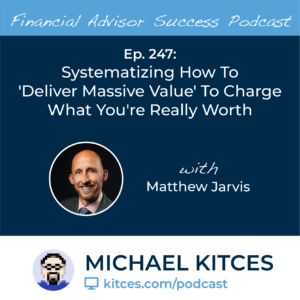Financial advisors have used various personality assessments with their clients for decades as a way to identify risk tolerance and to make the right asset allocation decisions. With the growing focus on financial psychology in recent years, though, many advisors have sought to better understand their clients’ behaviors and biases around money, with the ultimate goal of helping them make better financial decisions. In response, there has been a proliferation of behavioral assessments that purport to offer valuable insights into a subject’s psychological characteristics. However, without industry regulations for how these tests are developed, financial advisors need to recognize how to select the right assessments to use with their clients. Yet, how do we know whether an assessment actually gives an accurate psychological profile of our clients? Having at least a baseline understanding of psychometrics – the science of measuring unseen, personal characteristics – can provide a way to determine not only how useful an assessment can actually be for advisors to better understand the client, but also how to select suitable tools based on their psychometric properties.
The usefulness of a test can be judged according to three key elements: design, reliability, and validity. A test with a good design will clearly identify its purpose and the population it was designed for, and will also be engineered to eliminate error and bias from the results. A reliable assessment will provide consistent results each time it is administered, and a valid assessment will measure specifically what it claims to measure. A good test will also have had statistical analyses conducted that confirm the reliability and validity of its design, with published results so its users (e.g., advisors and their firms) can review the developers’ efforts to construct accurate assessments.
One of the core functions of psychometric assessments in the context of financial planning is to measure a client’s psychological risk tolerance in order to predict their behavior in various market conditions. Knowing which clients might be inclined to make poor decisions in up and/or down markets can help advisors focus attention where it is needed most during those often intense and stressful periods. Psychometric tests also aim to examine a client’s enduring traits, which remain relatively stable over time and can therefore be used to predict the client’s behavior in conditions different from those in which they took the assessment—an important attribute in an industry where market conditions and client behavior can both be highly unpredictable.
Beyond serving as traditional risk tolerance surveys, psychometric assessments can also help advisors to understand a client’s communication style, personality, and saving and spending behaviors more objectively and at a deeper level than their own subjective judgment (which can be fraught with biases and sometimes even knowledge gaps of the client’s personal circumstances). As the topic of financial psychology becomes more prominent in our field (as evidenced by the CFP Board’s inclusion of “Psychology of Financial Planning” in its list of Principal Knowledge Topics), it becomes increasingly important for advisors to better understand their clients’ behavioral and emotional traits to improve communication, behavior, and, ultimately, the financial planning recommendations given to their clients.
Ultimately, the key point is that when chosen carefully and used correctly, well-designed psychometric assessments can give advisors valuable information about their clients that cannot be obtained by a simple form, survey, or interview. With insight into their clients’ inherent psychological traits – which are often hidden beneath layers of personality – advisors can better position themselves to deliver financial plans that will more effectively ‘stick’ with their clients!








 Welcome back to the 246th episode of the Financial Advisor Success Podcast!
Welcome back to the 246th episode of the Financial Advisor Success Podcast!
